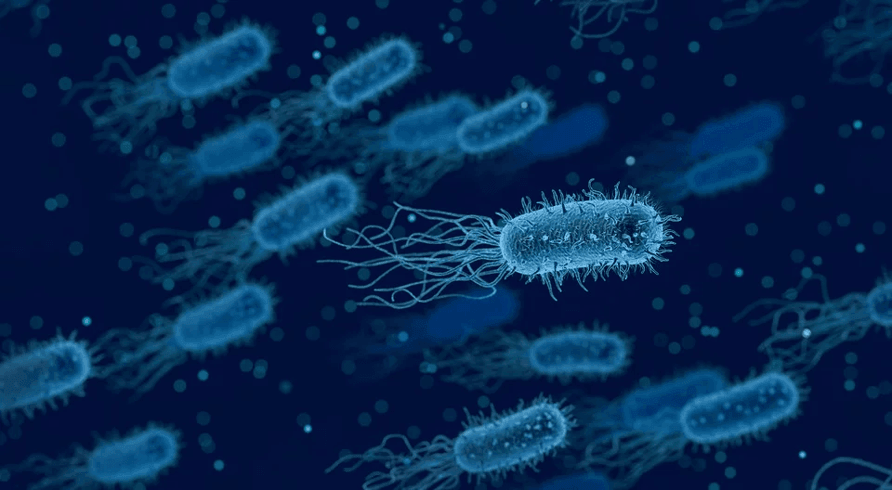Seaweed treatment for Alzheimer's
A recent article reports that the Chinese are testing a seaweed-based drug to treat Alzheimer’s disease. The drug is based on oligomannate, a polysaccharide derived from brown seaweeds. The therapy was found to improve one measure of cognitive decline in mild to moderate cases, and it’s the first new Alzheimer’s treatment approved by a regulatory agency in 17 years. Interestingly, the mode of action appears not to be directly upon the brain itself, but rather through the gut. The link to the study is here through its title Sodium oligomannate therapeutically remodels gut microbiota and suppresses gut bacterial amino acids-shaped neuroinflammation to inhibit Alzheimer’s disease progression.
The Gut Microbiome
An increasing body of research finds that the root of many maladies lies in the gut. Our resident microorganisms, which include bacteria, fungi, and archaea (a primitive group of single celled organisms), outnumber our own cells by about 10 to 1. These microscopic creatures reside on our skin and in our organs, but by far most of them live in our intestines, where they form complex ecological communities known as the gut microbiome. The gut microbiome produces a range of metabolic byproducts that, in turn, affects the metabolism of the host (us). These byproducts can be either toxic or beneficial, and research shows they profoundly affect our physical and mental well-being. One well appreciated contribution of gut bacteria is vitamin synthesis. Thiamine, folate, biotin, riboflavin, and panthothenic acid come from the diet but also from bacterial synthesis in the gut, and up to half of our daily requirement for vitamin K is thought to come from intestinal bacteria. Not surprisingly, there’s strong evidence the gut microbiome also plays a key role in either preventing or promoting colorectal cancers. Other maladies such as diabetes, metabolic syndrome and obesity, Crohn’s disease, inflammatory bowel syndrome, depression, and cardiovascular disease are all thought to be affected to varying degrees by the composition of our gut microbiome.
The study of the gut microbiome is regarded by many scientists as one of the most exciting recent developments in human nutrition and health. Powerful molecular tools allow scientists to identify a broad array of bacteria, fungi and archaea living in our guts. It can be a rewarding line of work, though not always pleasant (see this article “Why I put my poo in the post”). In general, scientists find that a higher diversity of gut bacteria is associated with better health. They also find that people living in affluent Western societies tend to have reduced gut microbiota diversity and increased incidence of the maladies listed earlier compared to people living in poorer, pre-industrial, or more agrarian societies. A strong relationship has been established between these findings and diet. An imbalanced or harmful gut microbiome is known as intestinal dysbiosis, but the good news is that one can correct this imbalance through a change of diet.
Fiber is an Essential Nutrient
Bacteria need to eat just as we do. In the case of our gut bacteria, what we eat determines what they get to eat, which in turn determines which bacteria thrive and which ones do not. A diet of processed foods loaded with carbohydrates and simple sugars favors different bacteria from one consisting of whole, unprocessed foods high in dietary fiber and complex carbohydrates. People who include lots of meat or fat in their diet host a different microbiome than vegetarians. Even something as simple as eating raw onions or other alliums (such as garlic) affects our bacterial composition (probably in a good way).
The recommendations to emerge from these findings are to limit our intake of simple carbohydrates and sugars; eat a diversity of foods; include raw (unpasteurized) fermented foods in the diet such as yogurt, kimchi, and sauerkraut; and eat fiber, fiber, and more fiber. The good bacteria we wish to flourish in our guts are able to digest complex fibers, whereas the harmful bacteria do better on simple carbohydrates. Vegetables and whole grains, of course, are good sources of fiber. And as all you lovers of seaweed know, so are sea vegetables.
Seaweed Fiber is Good for the Gut and the Brain
In fact, the unique dietary fibers found in algae (and rarely anywhere else) may be especially beneficial for our gut microbiome. The complex carbohydrates found in abundance in sea vegetables, particularly the kelps, include alginates and sulfated polysaccharides such as fucoidans. We’ve discussed these substances before on our website, but the science regarding their benefits proceeds so rapidly that it’s sometimes difficult to keep up! Sodium oligomannate, introduced at the start of this article as offering new hope for Alzheimer’s patients, was only recently derived as a degradation product of seaweed alginate. It was found to suppress intestinal dysbiosis and the resulting accumulation of phenylalanine/isoleucine, with reduced neuroinflammation and a measurable improvement in cognitive abilities. In other words, the Chinese researchers found evidence that a polysaccharide from seaweed was good for the gut, and that what’s good for the gut may be good for the brain.

Brown seaweeds such as the sugar kelp pictured here are rich in sulfated polysaccharides. These complex carbohydrates are the subject of much research for their medicinal properties.
Seaweed to Clear the Head
Does this mean we should turn to seaweed to improve our memory? Another fairly recent study published online in PubMed showed that healthy subjects who consumed an extract of brown seaweed 30 minutes before eating lunch had better performance on memory and cognitive tests done at intervals after lunch. In this case, the seaweed extract appeared to slow the digestion of carbohydrates and thus reduce the “brain fog” many of us experience after lunch as our bodies process sugars. As with the Alzheimer’s patients, the primary action occurred in the gut, which then affected the brain. However, it’s important to understand that the sodium oligomannate used in the Alzheimer’s therapy is a derived secondary alginate product, and therefore not itself present in seaweed. It appears the structural “backbone” of carbohydrate molecules plays a key role in their function and availability as a food source for different bacteria. It’s unlikely (or at least unproven) that Alzheimer’s can be prevented or cured simply by including seaweed in the diet, but seaweed may be of help when it’s included in a broader holistic strategy centered on a balanced, diverse diet and regular exercise. What does seem indisputable is that eating sea vegetables confers a multitude of healthy benefits, many of which are still being unlocked by science.



